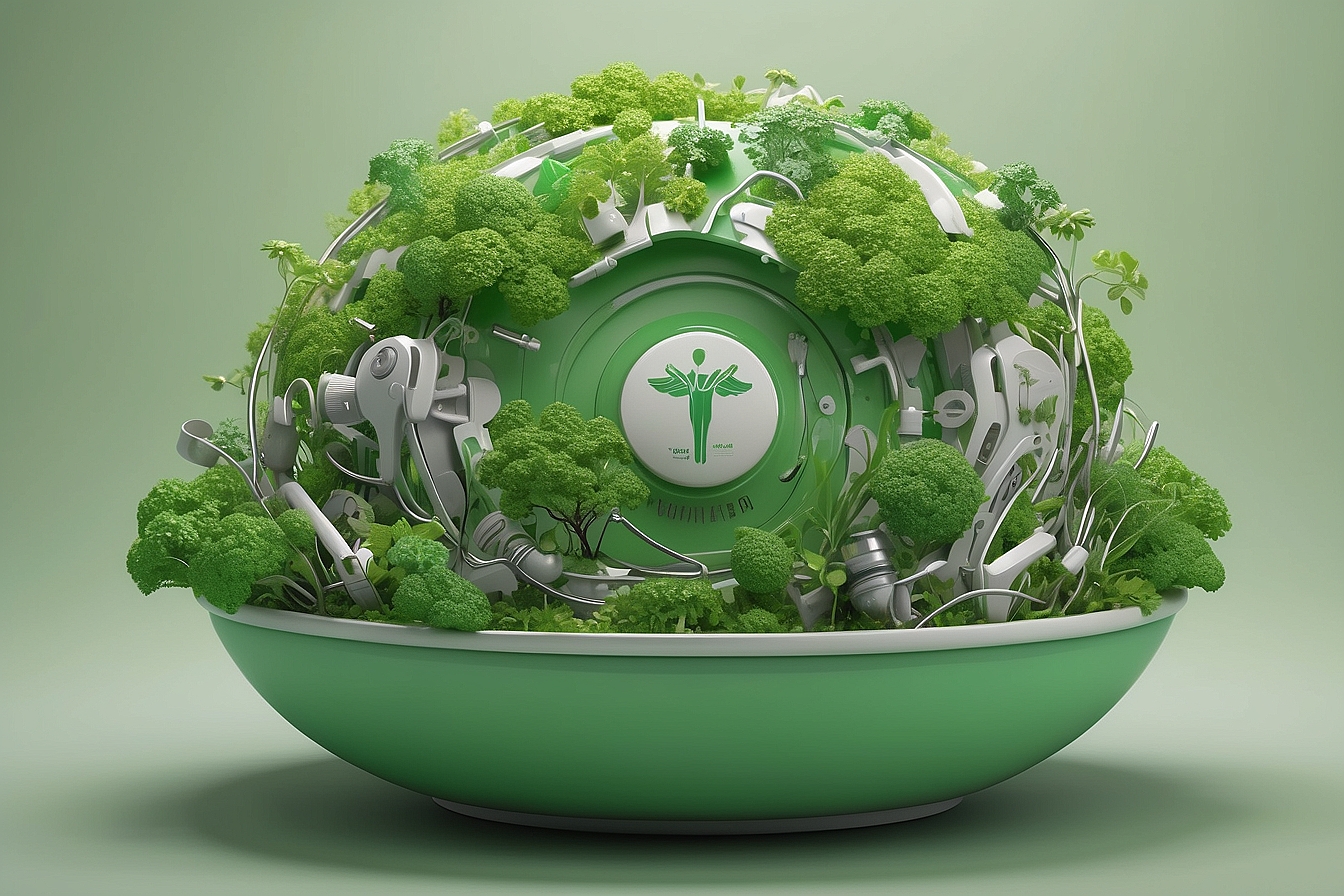Navigating the tumult of everyday clutter can indeed be quite taxing on one’s spirit. You’re certainly not alone in this feeling; it’s a common bind we all find ourselves in from time to time.
Interestingly, research suggests that an astonishing average of over 300,000 items might be nestled away in British homes! It was this realisation that spurred us on to delve deeper into the minimalist lifestyle and its potential benefits for bringing some much-needed calm and orderliness into our lives.
Join us as we embark on this journey towards a more serene existence, uncovering the joys of simplicity along the way. Let’s step into this together, shall we?.
Key Takeaways
- Living with fewer belongings through a minimalist lifestyle can lead to reduced stress and anxiety as it creates a calm and orderly environment.
- Choosing minimalism boosts productivity and focus by cutting down on distractions, allowing more time for tasks that matter.
- Adopting this simpler way of life can save money due to decreased spending on non-essential items, leading to financial benefits.
- A minimalist approach has positive effects on mental and physical health, encouraging better sleep patterns and healthier living habits.
- Embracing minimalism helps the planet by reducing waste and promoting sustainable consumption, lowering our environmental impact.
What is a Minimalist Lifestyle?
A minimalist lifestyle is all about living with less and focusing on the essential aspects of life. It involves decluttering physical possessions, simplifying daily routines, and prioritising what truly matters.
Definition
Embracing a minimalist lifestyle means choosing to live with less, focusing on what’s truly important. We simplify our possessions, declutter our spaces, and strip away the excess.
This approach isn’t just about having fewer things; it’s about finding freedom from the relentless pursuit of material goods. By prioritising essentialism and mindfulness over consumerism, we pave the way for more meaningful experiences.
We commit to intentional living by carefully considering each item we own and each activity we engage in, ensuring they align with our values. It’s a mindful consumption choice that leads us to appreciate quality over quantity.
Let’s delve into the key principles underlying this transformative lifestyle next.
Key principles
The key principles of a minimalist lifestyle centre around simplicity, intentionality and mindfulness. This involves consciously choosing to focus on what truly matters and prioritising experiences over material possessions. The following are the essential principles that underpin a minimalist mindset:
- Simplifying possessions and decluttering living spaces to create more physical and mental space.
- Intentionally curating belongings to reflect personal values and needs rather than succumbing to consumer culture.
- Mindful consumption, embracing quality over quantity, and reducing waste through conscious purchasing decisions.
- Cultivating gratitude for what is owned, valuing experiences over material possessions, and seeking contentment in simplicity.
- Fostering an awareness of environmental impact by practicing sustainable habits and reducing unnecessary consumption.
The Benefits of Minimalism
Embracing a minimalist lifestyle can lead to reduced stress and anxiety, increased productivity and focus, as well as saving money. It also promotes improved mental and physical health, has a positive impact on the environment and encourages gratitude and contentment.
Reduced stress and anxiety
Embracing a minimalist lifestyle can significantly reduce stress and anxiety. By decluttering our living spaces, we create a calming environment that promotes relaxation and mental well-being.
With fewer possessions to manage, there is less mental and emotional burden, allowing us to focus on the things that truly matter in life. Embracing simplicity also encourages mindfulness and reduces the overwhelming feeling of being constantly bombarded by material possessions.
Implementing a minimalist approach enables individuals to shift their focus from accumulating stuff towards cultivating experiences and meaningful connections with others. This change in perspective fosters a sense of contentment, reducing feelings of inadequacy often associated with consumerism.
Increased productivity and focus
Embracing a minimalist lifestyle can lead to increased productivity and enhanced focus. By decluttering your living and workspaces, you can eliminate distractions and create an environment that promotes efficiency.
With fewer possessions to manage, you’ll spend less time searching for items and more time on tasks that truly matter. Embracing simplicity also allows for clearer thinking, enabling you to concentrate on the essential aspects of your life while reducing mental clutter.
Moreover, embracing minimalism encourages prioritisation, helping you allocate your time and energy towards meaningful pursuits rather than being overwhelmed by material possessions or unnecessary commitments.
Saving money
Embracing a minimalist lifestyle can lead to significant financial benefits. By simplifying our lives and focusing on what truly matters, we reduce the desire for excessive material possessions, leading to decreased spending.
This approach encourages intentional and mindful consumption, allowing us to save money for experiences that align with our values, such as travel or supporting eco-friendly businesses.
By consciously choosing quality over quantity and embracing frugal living practices, we free ourselves from the burden of consumerism while working towards achieving financial freedom.
Less cleaning and tidying
Minimalism leads to less cleaning and tidying, making it easier to maintain an organised living space. With fewer possessions, there’s less clutter to manage, resulting in a more efficient use of time and energy.
This simpler approach allows for a cleaner and neater home, promoting mindfulness in daily routines.
The streamlined environment created by minimalist design fosters a sense of calm and order, contributing positively to mental well-being as well as reducing the environmental impact.
Embracing minimalism not only benefits personal living spaces but also supports conservation efforts, aligning with mindful living values.
Improved mental and physical health
Embracing a minimalist lifestyle can lead to improved mental and physical health. By decluttering our living spaces, we create a more serene environment that fosters relaxation and reduces stress.
Simplifying our surroundings also promotes better sleep patterns, enhancing overall well-being. Additionally, minimalism encourages mindful consumption of only what is necessary, which can lead to healthier habits and increased physical activity, benefiting both body and mind.
Practising minimalism supports mental clarity and emotional tranquillity by eliminating the distractions of excess belongings. This intentional way of living allows for deeper self-reflection and mindfulness practices, paving the way for improved mental health.
Positive impact on the environment
Embracing a minimalist lifestyle positively impacts the environment in several ways. By consuming less and focusing on conscious consumption, we reduce our carbon footprint and contribute to preserving natural resources.
Opting for sustainable, high-quality items over excessive possessions supports conservation efforts and reduces waste, promoting a greener planet for future generations.
Furthermore, choosing simplicity over consumerism encourages others to follow suit, creating a ripple effect that can lead to broader eco-friendly practices. This approach aligns with supporting conservation and environmental causes while promoting mindful living that emphasises quality over quantity.
Other Benefits of Minimalism
Minimalism promotes creativity and individuality by allowing individuals to focus on what truly matters to them. It also encourages gratitude and contentment, leading to a more fulfilled and satisfying life.
Promotes creativity and individuality
Embracing a minimalist lifestyle can ignite our creativity and help us truly express our individuality. By focusing on what truly matters to us, we free up mental space for inspiration and innovative thinking, allowing us to explore new hobbies, interests, and ideas.
This shift towards simplicity encourages us to think outside the box and find unique ways to express ourselves without being constrained by material possessions or societal norms.
In addition, minimalism empowers us to define success on our own terms rather than adhering to external pressures or expectations. This allows us to cultivate a sense of individuality that is authentic and reflective of our true passions and values.
Encourages gratitude and contentment
Embracing a minimalist lifestyle encourages gratitude and contentment, as it shifts the focus from accumulating material possessions to appreciating what we already have. By simplifying our lives and letting go of excess, we learn to be thankful for the essentials, fostering a sense of contentment with less clutter and more space.
This shift in mindset allows us to recognise the value in experiences and relationships over material wealth, leading to a greater appreciation for the simple joys in life.
Living minimally also promotes gratitude towards the environment by reducing consumption and waste. With fewer belongings, there is less reliance on purchasing new items, resulting in a reduced environmental impact.
Provides more time and energy
Embracing a minimalist lifestyle provides more time and energy for activities that truly matter. By owning fewer possessions and simplifying daily tasks, we free up valuable time to focus on relationships, personal growth, and our passions.
With less mental clutter and physical distractions, we can redirect our energy towards pursuits that bring us joy and fulfilment while making a positive impact on the environment.
Choosing minimalism also offers the opportunity to reassess priorities and allocate resources toward experiences rather than material possessions. The resulting increase in time and energy allows for greater involvement in environmental conservation efforts, contributing positively to sustainability initiatives.
Pros and Cons of Minimalism
Minimalism can lead to a more organised and clutter-free life, but it may also require letting go of sentimental items. To learn more about the benefits and considerations of minimalism, keep reading.
Advantages
Embracing a minimalist lifestyle offers numerous advantages. By simplifying your living space and possessions, you can experience reduced stress and anxiety levels. Clearing clutter and focusing on essential items can lead to increased productivity and mental clarity.
Additionally, adopting minimalism encourages conscious spending habits, resulting in significant cost savings while also positively impacting the environment through decreased consumption.
Furthermore, a minimalist approach promotes gratitude and contentment by shifting the focus from material possessions to experiences and relationships. This change in perspective fosters creativity and individuality, as well as providing more time and energy for meaningful pursuits.
Disadvantages
While embracing a minimalist lifestyle has numerous benefits, it’s important to consider the potential drawbacks as well. One disadvantage of minimalism is the initial challenge of letting go of sentimental possessions and adjusting to living with fewer material items.
This process can be emotionally taxing for some individuals, especially those who have strong attachments to their belongings. Additionally, adhering to a minimalist lifestyle may require extra effort when it comes to finding practical and versatile items that serve multiple purposes, which can be time-consuming and challenging.
Another drawback of minimalism is the social pressure or criticism that individuals may face from friends, family members, or society in general. Not everyone understands or supports this choice, and people might feel judged or misunderstood for embracing minimalism.
Moreover, while saving money is often touted as one benefit of minimalism, there are upfront costs associated with decluttering and revamping living spaces with new essential items.
Conclusion
In conclusion, adopting a minimalist lifestyle brings numerous benefits. It reduces stress and anxiety by simplifying your surroundings and mindset. Moreover, it fosters increased productivity and focus, enabling you to channel your energy into what truly matters.
Embracing minimalism can also save you money, cut down on cleaning time, and promote better mental and physical health. Additionally, it has a positive impact on the environment by encouraging sustainable consumption habits.
Overall, the minimalist lifestyle offers an array of advantages for those seeking simplicity and purpose in their lives.
FAQs
1. What does a minimalist lifestyle mean?
A minimalist lifestyle means opting for less clutter and fewer possessions, emphasising the idea that ‘less is more’ to simplify living.
2. How can adopting a simple living approach benefit me?
By embracing simple living, you reduce stress, save money, and find greater satisfaction with what you have.
3. Is downsizing my home part of leading a minimalist life?
Yes, downsizing can be an essential step in minimalism as it encourages reducing excess space and belongings to live more simply.
4. Will I feel happier if I choose a minimalist lifestyle?
Many people who adopt the principles of minimalism report feeling happier due to lower stress levels and valuing experiences over things.





